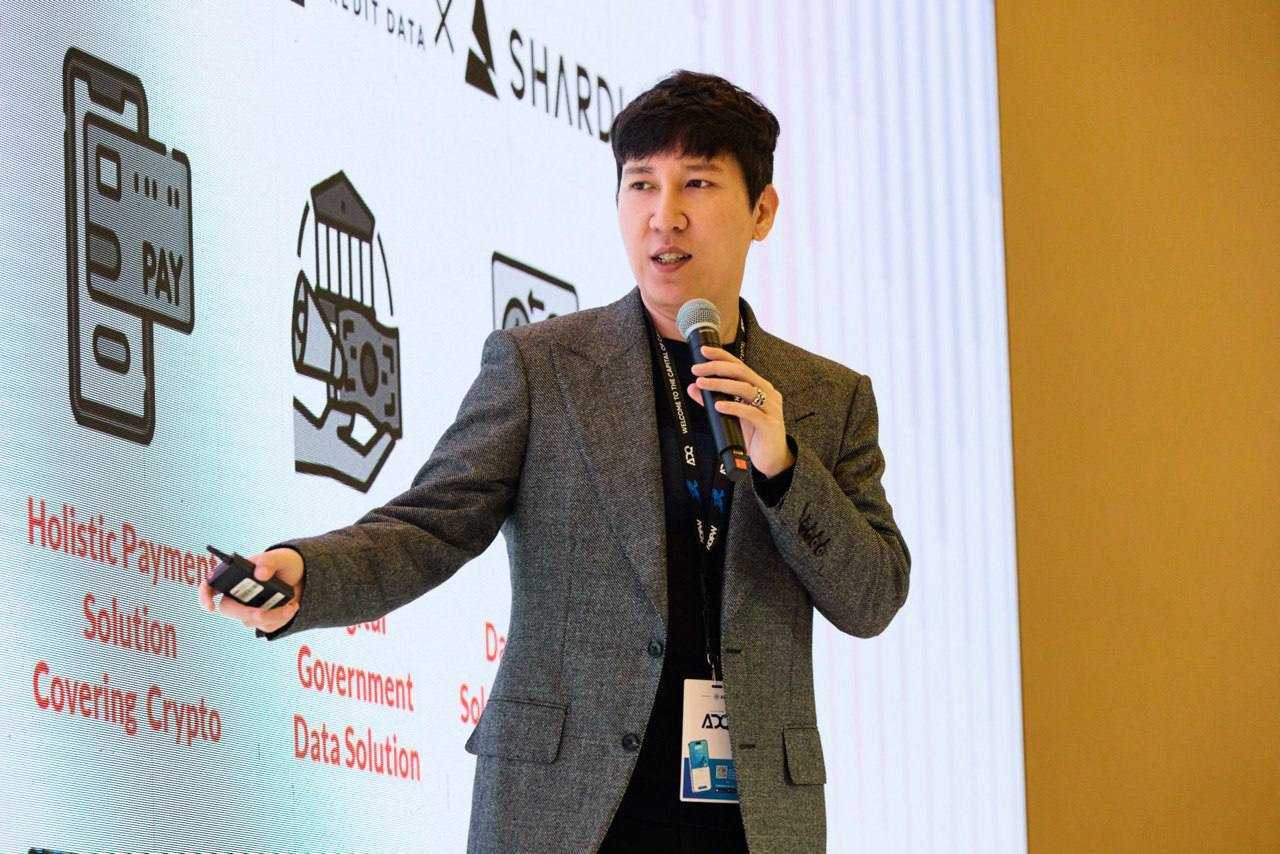Consensus Hong Kong 2025 Coverage
Hashed’s Simon Kim Says AI Has a ‘Black Box’ Problem
Published
9 hours agoon
By
admin

Hashed’s Simon Kim believes the future of artificial intelligence hinges on a radical shift: breaking open the black box of centralized models like OpenAI and building a decentralized, transparent ecosystem powered by blockchain.
For Kim, CEO of South Korea’s leading crypto VC fund, the urgency is clear. AI’s unchecked centralization threatens to create a “god” we don’t understand, while blockchain offers the tools to reward creators, protect intellectual property, and provide transparency into generative AI – which has been widely criticized for its bias and selective reasoning.
“AI is being centralized. OpenAI is not open, and it is controlled by very few people, so it’s quite dangerous. Making this type of [closed source] foundational model is similar to making a ‘god’, but we don’t know how it works,” he said in an interview with CoinDesk.
Kim argues that open-source AI models like Meta’s Llama are an example of how AI can be built with decentralization and transparency in mind.
But he says the lack of robust incentive mechanisms for data providers – i.e. everyone who uses the internet – is still a problem.
“AI models are just crawling the original content on the web and giving answers without compensating the creators,” Kim said.
Kim believes we can fix this by developing a “copyright layer” where rights holders can track how their content is used – and re-used – by AI while being paid along the way.
Hashed thinks it’s found a solution to this with Story, an IP management protocol that it led a Series-B round in last year.
The fund hasn’t invested in any decentralized AI projects yet, but feels it is building exposure to the space via its investment in Story.
This series is brought to you by Consensus Hong Kong. Come and experience the most influential event in Web3 and Digital Assets, Feb.18-20. Register today and save 15% with the code CoinDesk15.
“We definitely need a blockchain-based IP system to incentivize the original creator, both the creator and the remixers,” Kim continued.
Kim is far from the only voice calling for open source AI development. A growing chorus of voices from Meta’s Mark Zuckererg to the Economist’s editorial board all agree that the black box of closed source AI – the deity whose decisions and workings remain a mystery – has to go for the industry to mature.
But its up to Kim to convince them that the solution lies in blockchain and crypto.
Source link
You may like


You Should Not Wear This Bitcoin Shirt — Here's Why


Four Under-the-Radar Altcoins Witnessing ~10x Surge in Number of New Wallets Created in One Week: Santiment


Satoshi Action Fund raises $300,000 as it advances Bitcoin advocacy


US SEC Delays Decision on Bitwise 10 Crypto Index Fund


AI Agent Tokens Skyrocket as Franklin Templeton Highlights ‘Significant Promise’


Syria Exploring The Embrace of Bitcoin
China
Edith Yeung Sees Big Things to Come for Crypto in Hong Kong
Published
2 weeks agoon
January 4, 2025By
admin

As the co-founder and general partner at early stage venture capital fund Race Capital, Edith Yeung has had a front-row seat on the development of the crypto sector, particularly in Hong Kong, where she was born and raised. Most notably, she was a seed investor in Solana, investing $250,000 when SOL was valued at just $0.04, and also was an early investor in Lightning Network. Since 2017, Yeung has also authored the China Internet report, an influential annual survey of technology trends in China.
Here, Yeung, who will be a speaker at Consensus Hong Kong, discusses Hong Kong’s ongoing development as a crypto hub, her take on China’s stance towards crypto, what she foresees for Solana and one big crypto prediction for 2025.
This series is brought to you by Consensus Hong Kong. Come and experience the most influential event in Web3 and Digital Assets, Feb.18-20. Register today and save 15% with the code CoinDesk15.
Interview has been condensed and lightly edited for clarity.
How do you see crypto regulations developing in HK in 2025? Do you think more crypto companies will become licensed by the SFC in 2025?
It’s exciting to see that Hong Kong now has seven SFC-licensed virtual asset trading platforms. From an investor’s perspective, having a clear licensing regime is a major step forward. Regulatory clarity and predictability are like well-lit roads — they give investors the confidence to drive forward without worrying about unexpected detours.
That said, licensing alone isn’t enough. Liquidity is the other critical piece of the puzzle. Think of a trading platform like a brand-new highway: you can have the smoothest pavement and clearest signs, but if no cars are on it, drivers won’t bother. Similarly, no matter how many licenses you have, if there’s no active trading and liquidity, investors will hesitate to come aboard.
The key for Hong Kong now is to build not just the infrastructure but the traffic flow — because a great platform without liquidity is like an empty highway going nowhere.
What kind of role do you see Hong Kong developing in terms of the crypto sector, especially in relation to the US? What about Asia more broadly?
Hong Kong is the New York of Asia. Exchange Square is basically Wall Street — a 24/7 financial powerhouse with soaring skyscrapers and streets full of traders, investors and bankers with energy that never quits. If you are a crypto builder or investor, you will find many TradFi talents (traders, market makers, etc.) in Hong Kong.
To build a successful TradFi or DeFi company, you need to recruit specific types of talent that are hard to find even in Silicon Valley. Hong Kong boasts a rich financial history, with its stock market origins dating back to 1866 — over 150 years — means there is a deep pool of experienced professionals who can drive innovation and growth in your venture.
What would you say is distinctive about HK/Southeast Asia for crypto compared to the US and Europe?
The U.S. is home to the largest crypto addressable market in terms of institutional investors, regulators and builders. But Asia is home to the highest growth potential for the crypto market. In 2024, half of the top 10 countries in the world ranked by crypto adoption were located in Asia.
With the new Trump administration, the U.S. will continue to set the tone for crypto regulation and institutional adoption (e.g., BlackRock ETF). Asia will follow their lead with its massive usage base that is young and crypto-native.
Do you view China as generally pro or anti-crypto? There’s been a lot of crypto activity there, but at the same time, the government is officially against mining and speculation.
Hong Kong is part of China. Seeing pro-crypto regulation slowly forming in Hong Kong is a great sign and indicator for China. That said, China literally has an army of 220 million retail investors sitting on almost $21 trillion worth of savings. With a lingering property crisis and a meek economy, however, it is very difficult to say when China will open up for crypto business again, as the government focuses on these larger issues.
You were a seed investor in Solana; do you still have your initial investment there? Do you think Solana will continue to attract as much memecoin activity as it did in 2024?
Yes. It was an honor that I got to meet Solana co-founders Anatoly Yakovenko and Raj Gokal and become their seed investor back in March 2018. I am a long-term Solana holder and supporter. What I love about them is their dedication to building and their support for the developer community. The developer energy at the 2024 Breakpoint conference was high not only because of memecoins.
The Firedancer team made huge technical advances last year, and I just love that Anatoly is still head-down geeking out with people like Jump Trading chief science officer Kevin Bowers and his team every day. Even more exciting to me is seeing traditional finance players like Fidelity, Citi and PayPal speaking at Breakpoint about what they are building on Solana. This influx of established players not only validates Solana’s future but also signals that blockchain technology is ready for the masses.
What kinds of companies are you currently looking to invest in and why?
I am a seed investor in Huma Finance — a leader in PayFi building on Solana and a leader in stablecoin infrastructure. In 2024, they did over $2 billion in stablecoin transactions. At Race Capital, we will continue to focus on investing in internet infrastructure. Builders who want to be around long-term do not mind whether it’s an up or down cycle.
What’s something you think will happen in 2025 that will surprise crypto folks?
The establishment of a U.S. Bitcoin Reserve by the end of 2025. The United States is currently the largest holder of Bitcoin, with approximately 207,189 bitcoins. This effort will be bolstered by this massive stockpile, which is now valued at over $20 billion at current prices. This decision is expected to drive up bitcoin prices, prompting other governments around the world to follow suit.
What are you most excited to discuss onstage in Hong Kong?
Hong Kong’s role in building the crypto industry in 2025, China’s love/hate relationship with crypto and perhaps more insights on Solana.
Source link

You Should Not Wear This Bitcoin Shirt — Here's Why

Four Under-the-Radar Altcoins Witnessing ~10x Surge in Number of New Wallets Created in One Week: Santiment

Satoshi Action Fund raises $300,000 as it advances Bitcoin advocacy

US SEC Delays Decision on Bitwise 10 Crypto Index Fund

AI Agent Tokens Skyrocket as Franklin Templeton Highlights ‘Significant Promise’

Syria Exploring The Embrace of Bitcoin

Hashed’s Simon Kim Says AI Has a ‘Black Box’ Problem

Expert who predicted Bitcoin’s 2017 surge says XYZVerse could be the next big thing

How Coinbase vs SEC Ruling Could Influence XRP Case

PEPE koers daalt ondanks toename whale interesse – wat gaat Pepe Coin doen?

BlackRock publishes 3 key takeaways to boost Bitcoin ETF adoption in 2025

One Factor Could Trigger ‘Larger’ Sell-Off in Cardano, Says Analyst Benjamin Cowen – Here’s His Outlook

Ancient8 (A8) Price Rockets 30% And Drift Token Up 7% Post Major Listing

US Tightens AI Chip Exports Restrictions Ahead of Trump’s Inauguration

ARKA NOEGO / NOAH’S ARK: On Solidarity and Bitcoin

Ethereum’s lowered yield might signal a paradigmatic shift in the ecosystem

Arthur Hayes, Murad’s Prediction For Meme Coins, AI & DeFi Coins For 2025

Telegram users can send gifts to friends, TON fails to pump

Institutional Investors Go All In on Crypto as 57% Plan to Boost Allocations as Bull Run Heats Up, Sygnum Survey Reveals

Bitcoin Could Rally to $80,000 on the Eve of US Elections

Crypto’s Big Trump Gamble Is Risky

A Kamala Presidency Could Be Just as Bullish for Bitcoin

Ripple-SEC Case Ends, But These 3 Rivals Could Jump 500x

SEC filing underway, Bitcoin rewards app Fold adopts FLD ticker

Cardano and the XRP price action lock in bulls vs bears battle as RCO Finance prepares for 3,000% surge

Tether CEO Paolo Ardoino Denies Rumors That Stablecoin Issuer Is Under Federal Investigation

A16z-backed Espresso announces mainnet launch of core product

Crypto Exchange OKX Moves To Support USDC Ecosystem by Adding Six New Trading Pairs

Trump’s Coin Is About As Revolutionary As OneCoin

Ripple Vs. SEC, Shiba Inu, US Elections Steal Spotlight
Trending

 DeFi3 months ago
DeFi3 months agoEthereum’s lowered yield might signal a paradigmatic shift in the ecosystem

 24/7 Cryptocurrency News2 months ago
24/7 Cryptocurrency News2 months agoArthur Hayes, Murad’s Prediction For Meme Coins, AI & DeFi Coins For 2025

 News3 months ago
News3 months agoTelegram users can send gifts to friends, TON fails to pump

 Bitcoin2 months ago
Bitcoin2 months agoInstitutional Investors Go All In on Crypto as 57% Plan to Boost Allocations as Bull Run Heats Up, Sygnum Survey Reveals

 Bitcoin2 months ago
Bitcoin2 months agoBitcoin Could Rally to $80,000 on the Eve of US Elections

 Opinion2 months ago
Opinion2 months agoCrypto’s Big Trump Gamble Is Risky

 Opinion3 months ago
Opinion3 months agoA Kamala Presidency Could Be Just as Bullish for Bitcoin

 Price analysis2 months ago
Price analysis2 months agoRipple-SEC Case Ends, But These 3 Rivals Could Jump 500x


